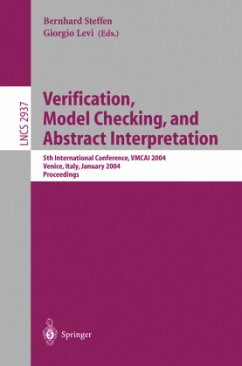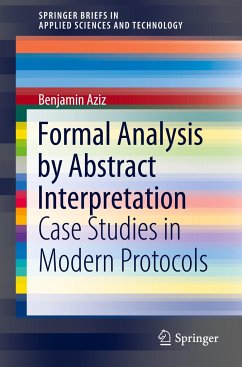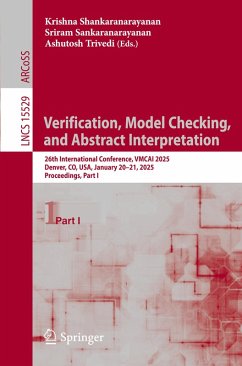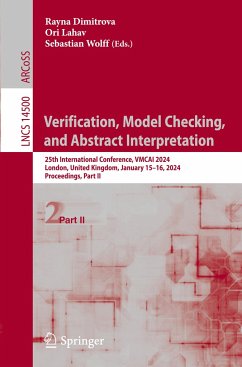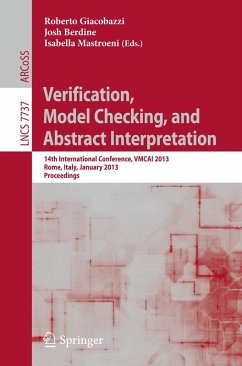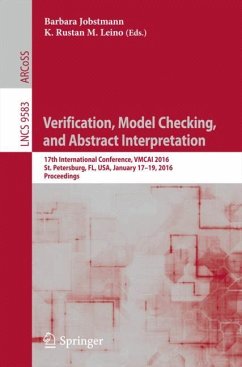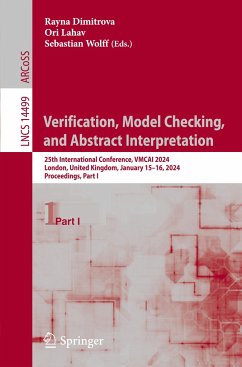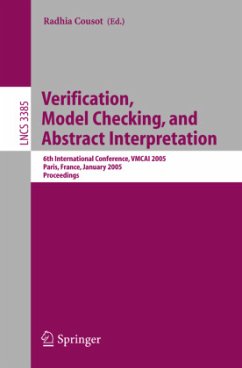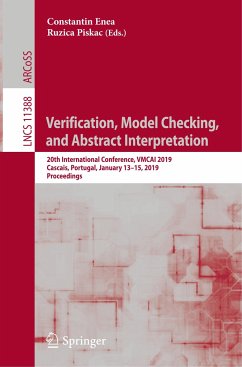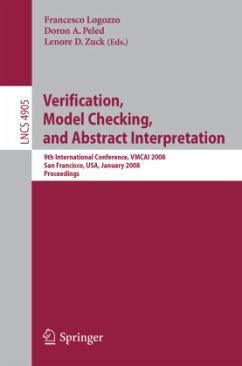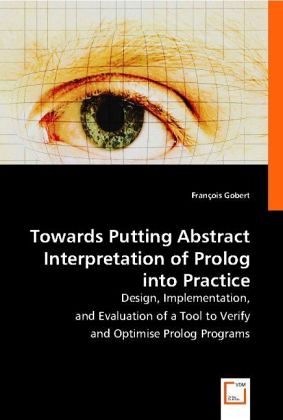
Towards Putting Abstract Interpretation of Prolog into Practice
Design, Implementation, and Evaluation of a Tool to Verify and Optimise Prolog Programs
Versandkostenfrei!
Versandfertig in 6-10 Tagen
52,99 €
inkl. MwSt.

PAYBACK Punkte
26 °P sammeln!
Logic programming is appealing since it allows the programmer to concentrate on the meaning of the problem to be solved. Unfortunately, for efficiency reasons, the declarative and operational natures of Prolog do not coincide. Prolog uses an incomplete depth-first search rule, unifications and negations may be unsound, and there are extralogical features like the cut or dynamic predicates.The goal and topic of this thesis is the design, implementation and evaluation of an abstract interpretation framework of Prolog to integrate state-of-the-art techniques. The analyser is based on an original ...
Logic programming is appealing since it allows the programmer to concentrate on the meaning of the problem to be solved. Unfortunately, for efficiency reasons, the declarative and operational natures of Prolog do not coincide. Prolog uses an incomplete depth-first search rule, unifications and negations may be unsound, and there are extralogical features like the cut or dynamic predicates.
The goal and topic of this thesis is the design, implementation and evaluation of an abstract interpretation framework of Prolog to integrate state-of-the-art techniques. The analyser is based on an original proposal that defines the notion of abstract sequence, which allows one to verify many desirable operational properties of a logic procedure. The properties include types, modes, sharing of terms, proving termination, linear relations between the size of input/output terms and the number of solutions to a call. We also design and implement an optimiser that generates specialised code. The optimiser uses the abstract information to safely apply source-to-source transformations. Code transformations include clause and literal reordering, introduction of cuts, and removal of redundant literals. The optimiser follows a precise strategy to choose the most rewarding transformations in best order.
The goal and topic of this thesis is the design, implementation and evaluation of an abstract interpretation framework of Prolog to integrate state-of-the-art techniques. The analyser is based on an original proposal that defines the notion of abstract sequence, which allows one to verify many desirable operational properties of a logic procedure. The properties include types, modes, sharing of terms, proving termination, linear relations between the size of input/output terms and the number of solutions to a call. We also design and implement an optimiser that generates specialised code. The optimiser uses the abstract information to safely apply source-to-source transformations. Code transformations include clause and literal reordering, introduction of cuts, and removal of redundant literals. The optimiser follows a precise strategy to choose the most rewarding transformations in best order.



